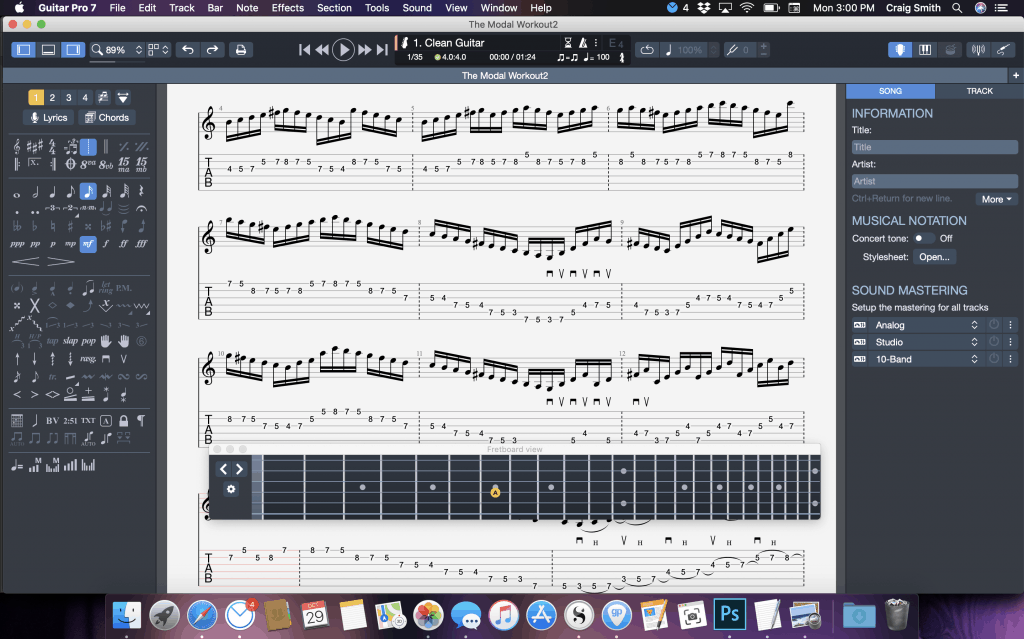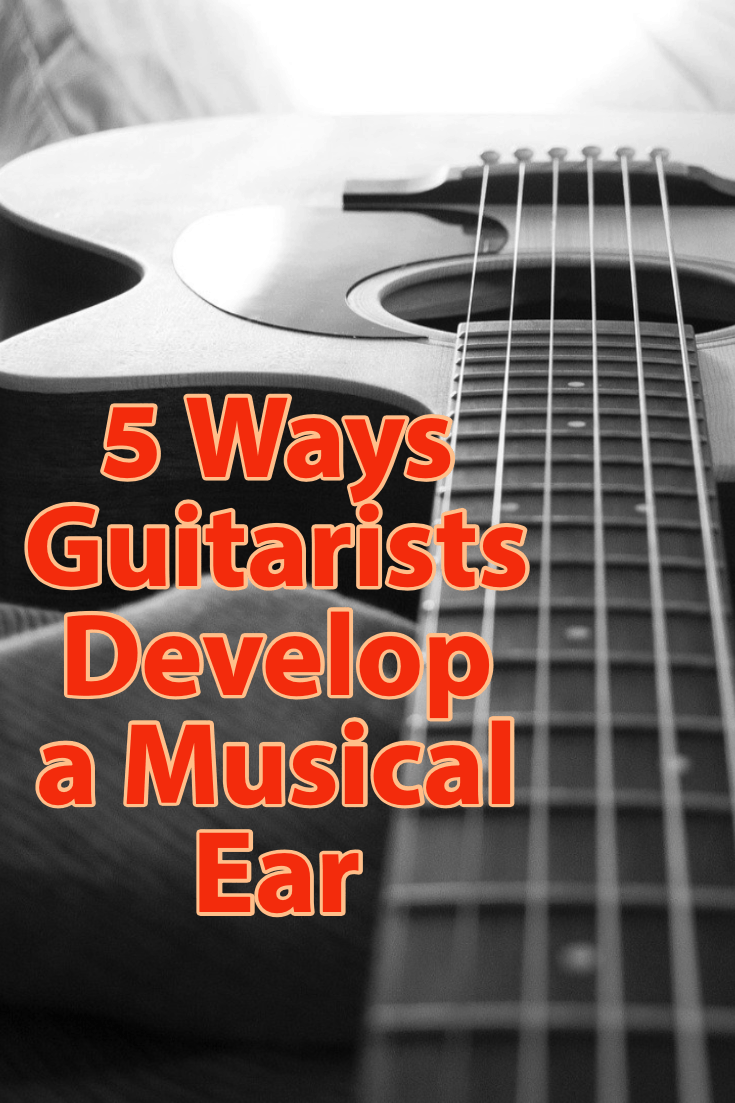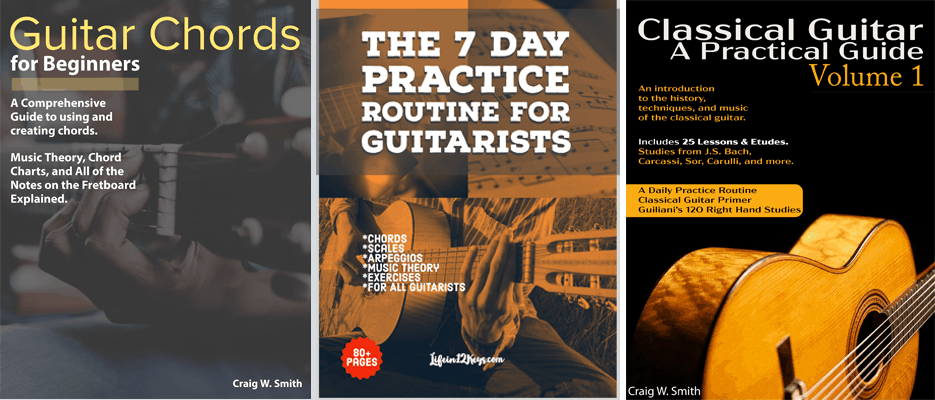One of the most important skills you can develop as a musician is a “good ear”. The ability to match pitch and audiate on the guitar is fundamentally important in all aspects of your playing. If you want to Develop A Better Ear, check out this article below.
Developing your ear will make your improvisation more creative and melodic. As a result, it will improve your composition and make learning and accurately playing any piece of music easier.
While some musicians are lucky enough to be born with perfect pitch, most are not. Intuitive relative pitch, for most is a skill that needs to be actively improved and worked on.
In this article we’re going to look at 5 effective ear training techniques. To develop a better ear over time takes time and patience, a lot of hard work.
1. Develop A Better Ear By Singing
Audiation and pitch training are usually seen as two different skills. In the practical context of making music though, it is important that both are developed and used together.
Audiation is the ability to imagine or “hear” music in your head. When you listen to high level musicians improvise, they are audiating the melody they want to play. In addition, they are using their “ear” to translate that to their instrument simultaneously.
Audiation
Without audiation, you have no musical content to translate to your instrument. Without a good ear you won’t be able to play what you hear in your head.
'Audiation is the musical equivalent of thinking in language. When we listen to someone speak we must retain in memory their vocal sounds long enough to recognize and give meaning to the words the sounds represent.'Click To TweetTherefore, developing your audiation should always be a cornerstone of ear training. It should be the first step in learning to mentally recreate music accurately down to the smallest detail. The simplest way to start developing this skill is by learning to sing a guitar solo.
While this sounds ridiculously simple at first, our brains are very good at filling in blanks. Even a piece of music you think you know very well will often be difficult to sing back perfectly. This exercise forces you to mentally audiate every nuance and detail in a piece of music.
Choose a solo that you:
- Don’t already know how to play.
- Is melodic enough to give you a solid framework to remember.
- Isn’t too fast.
Actively listen to the solo, paying attention to the specific phrasing and timing, as well as the intervals between notes. Pause the song and then sing it, preferably to a metronome or click track.
You’ll usually find that you have missed some sections or the phrasing is wonky. As you would when learning a piece on guitar, revisit challenging sections until you can sing along perfectly.
This exercise should only take 5-10 minutes. Doing it regularly with different pieces of music will improve your audiation. Also, you’ll learn to consciously pick up on the small details, which are very important when learning by ear.
2. Improve Your Guitar Music Theory
You’ll often hear stories about how guitar legends like Stevie Ray Vaughan or Jimi Hendrix had no formal musical education or knowledge of theory.
While this is an inspiring story, music isn’t a level playing field. Both Jimi and Stevie would have had extraordinary, and likely innate, natural pitch which enabled them to do what they did with no theoretical framework.
[editors note] Some people are also physiologically better equipped for the physical aspects of playing guitar or any other musical instruments.
The vast majority of musicians aren’t born with perfect pitch, so improving music theory is actually a massive asset for improving the ear. This sounds paradoxical, because many argue that music theory moves you further away from playing intuitively. However, having a good foundation in theory gives your ear context for what it is hearing.
Music Theory for Guitarists
Falling back onto the old cliché of music as a language, trying to improve your ear without any theory is like learning a language without knowing what the words mean. While it is possible to just learn phrases by rote, understanding the meaning of each word gives your brain an anchor.
If you know what a harmonic minor scale is, it means that you’ll be able to identify it much more quickly when hearing it, rather than it just being a formless sequence of notes with no real world connection to your instrument.
The human brain is extremely good at pattern recognition and association. If you see music theory as the context in which you hear music, you can identify and recognize similarities between what you’re hearing and what you already know – a big advantage when it comes to playing by ear.
3. Interval Training
Interval training is essential for developing good relative pitch. Relative pitch allows you to identify a note by ear in relation to the note that you’re hearing.
Developing perfect pitch is almost impossible. Relative pitch can be learned to a very high level and is just as useful in most real-life musical situations.
There are countless ways to learn Interval training. From smartphone apps to full online guitar courses. It’s worth experimenting with different kinds of learning methods to see what is most effective for you.

Many of these teaching methods concentrate on basic practice drills. It’s very important that you continually apply interval training to real-world musical applications. For that reason I always advise students to learn songs by ear and make that the foundation of their interval training.
Let’s face it, it’s a lot more fun than pressing buttons on an app. It also develops your sense of timing, phrasing and technique, which are all just as important as interval training itself.
4. Develop Harmonic Pitch
The ability to identify guitar chord shapes by ear will likely be the single most important skill to come from ear training.
The difficulty of doing this varies from genre to genre. Neo-soul, RnB and jazz are all popular genres that frequently use extended chord shapes and more complex inversions.
The good news is that interval training, audiation and theory all contribute to developing this skill, so it is more a continuation of your ear training than a daunting new skill in and of itself.

Start by working out simple chord shapes such as major and minor triads formed with the root and fifth with either a minor or major third, this is a skill most musicians pick up on quickly.
Practice Makes Perfect
Once again, tenacity and dedication will pay off, as once you start working out more complex chords, you’ll be able to identify their intervals in any key. For example, once you know what an ASus7 chord sounds like, and how to play it, you’ll be able to identify and play an FSus7.
Learning to do this on the piano can often help in the early stages. The keyboard is set out in a more linear way, so it can be much easier to work out exactly what is being played, rather than having to work out harmonic intervals on a non-linear fretboard.
5. Develop A Better Ear by Transcribing Music
The ability to transcribe music combines all of the different points we’ve covered. You’ll need to audiate a piece of music in enough detail to be able to pick it apart, as well as use theory to recreate it. Interval and harmonic pitch training will help you build the chords and melody.
Software like GuitarPro, or its free alternative TuxGuitar, mean that all guitarists have access to excellent tools that make the process of transcribing easier than ever.

The real value in transcribing music is that it forces you to understand and learn by ear what all of the instruments are playing. If you want to Develop A Better Ear this is crucial. This will not only improve the depth and cohesion of the music you compose, but it will help your playing.
Developing Good Musical Habits
If you get into the habit of listening to every instrument, you’ll sync with a band better. Consequently, you’ll understand the wider context around your own guitar parts.
Ear training is a long term process, where improvement is best measured in years rather than days or weeks. It is something that you’ll continually be improving for the rest of your life. However, it is arguably the single most important and rewarding musical skill you’ll have as a guitarist. For that reason it should be an important part of your musical development and practise routine.
About the Author
Scott Ronald is a multi-instrumentalist and producer with over 7 years experience as a touring and session musician. He has played across Europe and featured on a number of studio albums.
He is also the editor of GuitarGearHeadz [www.guitargearheadz.com], a guitar, pedal and amp companion site that helps guitarists make informed purchases and find the best equipment for their needs.

Craig Smith is a professional Guitarist, Teacher, and Writer living in Sanford, Florida. Craig has taught guitar lessons, performed 200+ gigs per year for nearly 30 years, and published 4 guitar instructional books. When he’s not gigging or writing, you may find him by the pool with his wife Celeste, 4 Chihuahuas, and a drink. 🎸



